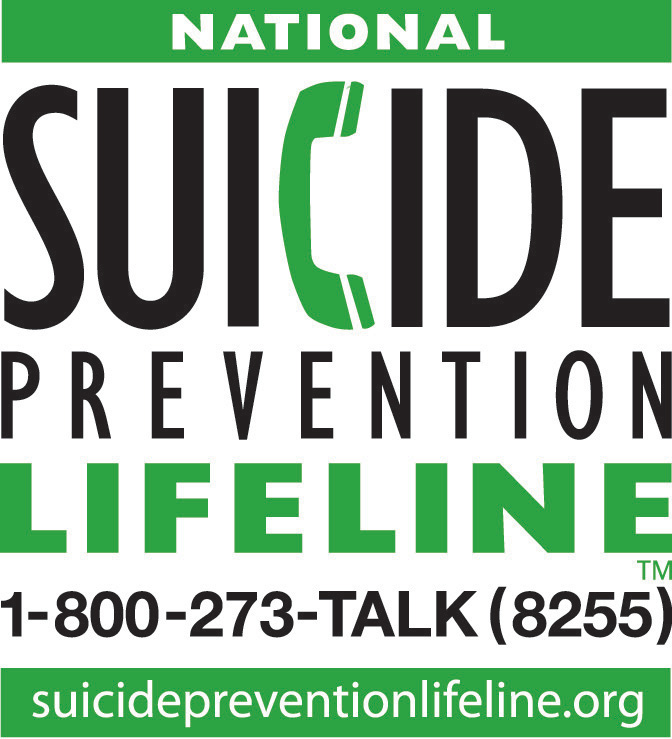Crisis / Suicide Prevention
 If you are reading this page, you might be in crisis or you might be helping someone who is and we want to give you help. Know that a crisis is temporary and often a time when people lose hope which can lead to bad things. We are glad you are looking for help and want to share what we think might be most useful to you.
If you are reading this page, you might be in crisis or you might be helping someone who is and we want to give you help. Know that a crisis is temporary and often a time when people lose hope which can lead to bad things. We are glad you are looking for help and want to share what we think might be most useful to you.
First things first, you, or someone you are helping needs to be safe. If you are thinking about suicide, or the person you are trying to help is, get help immediately! You can call 911 for a police response if needed. If you want to talk with someone, call the national suicide hotline at 1-800-273-8355. Someone will answer, listen, and help you get your hope back.
It is important to know common warning signs, things that tell you "hey, there is something going on and it doesn't look good." Here are some of those to be watchful for:
- Decline in performance on the job or at school
- Skipping activities
- Poor concentration, sleepiness, inattentiveness
- Unusually disruptive or rebellious behavior
- Re-occurring death or suicide themes in written, artistic, or creative work
- Inability to tolerate praise or rewards
Behavioral Warning Signs:
- Any suicide attempt, no matter how medically minor
- Giving away prized possessions
- Sudden changes in behavior or attitude
- Withdrawing from friends and social involvements
- Self-abusive behaviors
- Risk taking and careless behavior
- Increase in drug or alcohol use
Link to Depression:
- Change in sleep and/or appetite patterns
- Apathy about dress and appearance
- Listening to sad/violent music or the same song repeatedly
- Lack of energy
- Stop planning for the future
- Running away from home
- Sudden improvement after a period of depression
Direct and Indirect statements:
- "I wish I were dead."
- "I am going to kill myself."
- "I'm going to end it all."
- "I don't want to live anymore."
- "No one cares if I live or die."
- "Does it hurt to die?"
- "What would you do if I died?"
- "You'd be better off without me."
- "They'll be sorry when I am gone."
It is important to remember that this list is not exhaustive. Each person is different and may show one or many of the warning signs listed above. It is important to pay attention to each one. You can always error on the side of caution- and remember that you are protecting a life! Keep in mind that there are many ways to communicate- so forms of social media like Facebook and Twitter should be monitored. Think about the posts you read and make sure there doesn't appear to be a hidden agenda.
In case you are looking for other resources, listed below are several local crisis numbers and hotlines:
Crisis Numbers
- Clermont County 24 Hour Crisis Hotline - (513) 528-SAVE (7283)
- Clermont County Mobile Crisis Team 513-218-9800
- (513) 281- CARE (2273) - Hamilton County 24 hr. line
- Psychiatric Emergency Services and Mobile Crisis Unit, (513) 584-8577
- Children/Adolescent Emergency (513) 636-4124 Children's Hospital Psychiatric Response Center
- (513) 558-8888 , Mental Health Access Point
- 911
People are always asking, "what can I do?" so there are some suggestions to help you get started. Just remember in all situations- please reach out for help. There are many people and resources ready to help- accessing them isn't always easy- but it is worth the effort. If you still aren't sure where to go, call MHA and we will try and guide you (513) 721-2910 or (859) 431-1077.
What Can I Do?
- Recognize risk factors/warning signs
- Stay with the person if possible
- Encourage expression of feelings
- Listen without passing judgment
- Make empathic statements
- Do not offer reassurances that may not be true
- Do not offer simplistic solutions
- Assess risk and lethality
- Is the individual making threats? Don't be afraid to ask.
- Does the individual have a plan?
- How specific is the plan? (time frame, details, chance of intervention)
- Does the individual have access to means that would assist in carrying out the plan?
- Has the individual made any previous attempts?
- Explore options for support in the environment
- Get family and friends involved with the person's knowledge
Don't
- Leave the person alone
- Assume the person isn't serious
- Act shocked
- Encourage guilt
- Physically intervene
- Promise total confidentiality/offer reassurances that may not be true
- Keep it a secret
- Minimize the problem/offer simplistic solutions
- Challenge
- Use reverse psychology
- Give up hope
Getting Help
- Call for professional help
- If you are a student - tell a trusted adult (parent, other relative, teacher, counselor, crisis hotline)
- Know your community resources
- Maintain connection with service providers and individuals at risk
